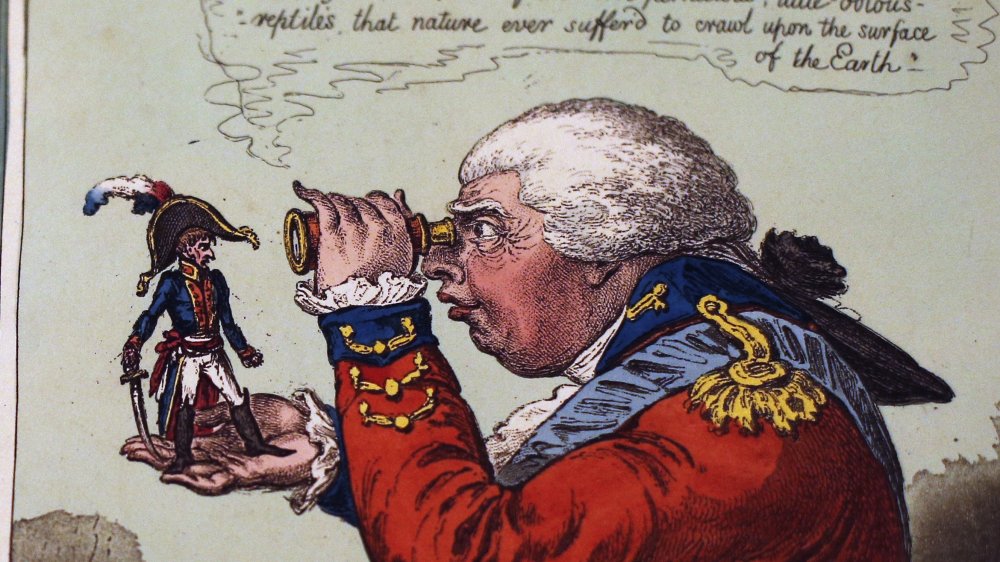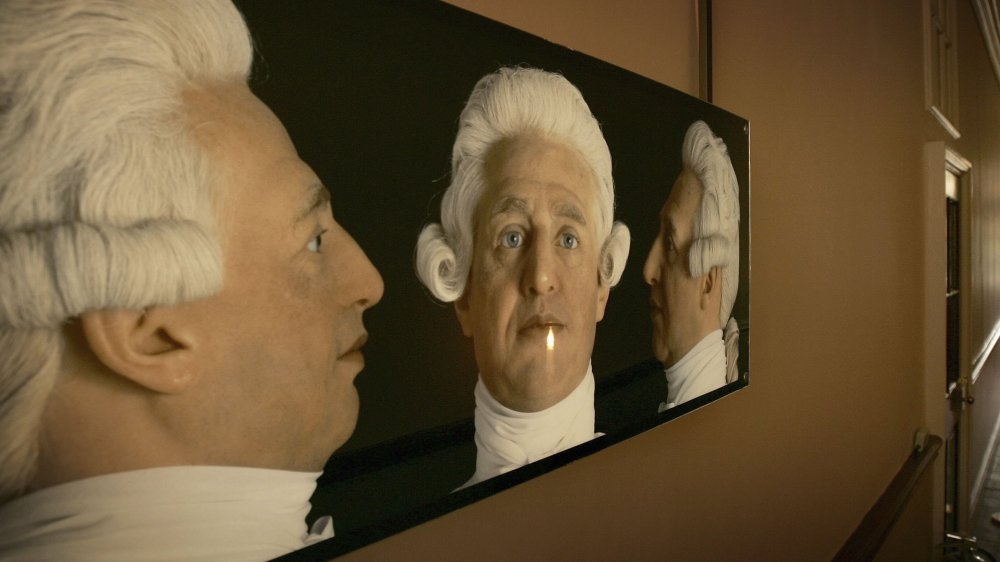The Truth About The Madness Of King George III
For all of his many accomplishments, King George III will likely be remembered by this generation for chewing scenery during Hamilton and as the guy who had to go home after work one day and say "honey, I lost America." He's been long associated with purported zany hijinks and a certain level of instability, with a lot of the public's feel for the fella stemming from the acclaimed play and feature film The Madness of King George, which, in an 18th century historical fiction kind of a way, does a phenomenal job of painting the monarch as a wacky-pants celebrity lunatic. Is there any truth to this portrayal? If he really was a steaming hot crazy burger, what was the cause? Or is it possible that the King of Great Britain was actually a relatively normal dude whose reputation just snowballed over the years?
King George: a life punctuated by dribbling
No, he was pretty out of it, especially in his later years. A boatload of speculation as to the cause has been thrown around over the years, with porphyria (a blood disorder) and bipolar disorder sitting towards the top of the list of contenders. Porphyria was the especially hot theory after a widely circulated study was released in the 1960s, but it's been largely debunked. Whatever the cause, the king's instability was well documented, and in recent years has been corroborated through computer analysis of his letters. It's also worth mentioning that he was likely being treated with medicine made from arsenic. George reportedly suffered from severe dementia by the end of his life, exacerbated by total blindness and a near total deafness. Excerpts from documents written up by Geroge's Sergeant Surgeon to the King Sir David Dundas are particularly illuminating, explaining that the benefits of trying to operate on the king's cataracts were outweighed by the potentially catastrophic effects that a failed operation would have on his already deteriorating mental health. In 1818, George was reportedly so out of it that he couldn't understand that his wife had died. He remained king largely in name only until his death in January of 1820, with the Prince of Wales appointed as regent in 1811 after a particularly nasty series of incidents following the death of George's daughter.
In the end, George lived out the end of his days hidden from the public eye, secluded in Windsor castle. The downside: he was sort of entirely out of it by the time his ticket was punched, rambling incoherently for literal days. On the up side, he kicked it in a palace surrounded by people whose job it was to wipe up his saliva while calling him "your majesty," which is pretty much how we want to go.

